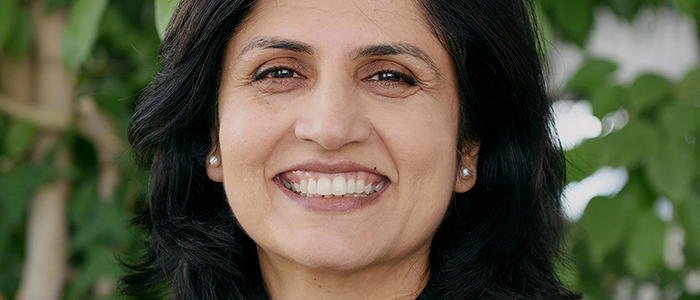
"Structure Determines Behavior. We Need Insights from Behavioral Economics to Save the Planet."
Five Questions with Dr. Jyotsna (Jo) Puri, Head, Independent Evaluation Unit (IEU) of the Green Climate Fund, a global fund created to support the efforts of developing countries to respond to the challenge of climate change. GDN and the GCF have entered into a strategic knowledge partnership for cooperation in knowledge generation, exchange, dissemination and uptake.
Q. Climate Change is placing the planet in grave danger. What can good research do to save it?
That’s a great question. Good research can indicate what works, and what doesn’t, in climate change, both for mitigation and for adaptation. Research and consequently high-quality evidence has shown, study after study, that it is not sufficient to provide people with infrastructure or knowledge of climate change. Indeed, climate change is the poster child for naïve expectations, because knowledge, attitudes and beliefs do not lead to action. Inaction is a consequence of believing that all we need to do is to change people’s level of knowledge. Instead, what we need to do is to change behavior. Behavior change does not occur because knowledge is supplied.It occurs, as behavioral economics now tells us, when there are subtle but important nudges in the right direction. They occur when you provide incentives, or when you make decision making easier, for example. Overall change happens when you change the ‘choice architecture.’ Changing the choice architecture is what and where research can contribute to, dramatically.
Q. Which top 2-3 actions would you recommend for researchers to begin with, right away?
Produce evidence maps. Look at systematic reviews. Think inter-disciplinary and engage with policy. For example, do you even know what transformational change is? Indeed this is a key question that organizations and policy makers face today. Research has yet to answer this question. Other questions are: What sort of policies work to alleviate poverty sustainably? What works to change people’s behavior so they are more climate friendly? We still don’t know what works in forestry and what works to increase farmer’s adoption of insurance and what takes them out of poverty. Engaging with policy and strategy related people and finding out what their needs are, is key for research. Researchers have to learn the language of policy makers, so that researchers can influence policy and get policy makers to understand research better.
Q. What are we learning from Climate Change evaluations, and do you have any big pointers for policymakers?
Information is only half the story. Climate action is relatively insignificant right now and definitely insufficient. Behavioral insights are telling us that ‘structure determines behavior.’ We need to change the choice architecture so that people make decisions that they ultimately ‘want to make’ quickly and efficiently. Policy makers need to engage more with evidence production and evidence use.
Q. Tell us about your association with GDN, and why it matters?
GDN is an interdisciplinary organization; it knows the value of looking at problems and their potential solutions, from all sides. GDN works with developing country organizations, and has an excellent network of institutions. All these are tremendous assets, which can help shape the international research-knowledge-action agenda. GDN and the GCF’s strategic knowledge partnership on climate change adaptation and mitigation will promote academically sound monitoring and evaluation of projects and programs in developing countries, to link knowledge with outcomes and understand the determinants of local behaviors and decision making processes, in the face of climate change.
Q. What do you see, as the future of our planet? Do we have a real chance to build better lives?
The answer is a resounding: ‘Yes, of course!’ Rachel Carson, the author of ‘The Silent Sprint,’ and arguably the initiator the environmental movement globally, told us what can go wrong if we aren’t careful. Norman Bourlag, the father of the Green Revolution demonstrated this powerfully. But, Norman Bourlag also showed us what we can do with technology and innovation and persistence. Today, Richard Thaler, and Daniel Kahnemann and Amos Tversky are showing us what we can do to get all of us to make better decisions. All I can say is that research and persistence is showing us the path forward. We need to listen better, and do more.
In correspondence with Madhuri Dass Woudenberg, Head of Communications, Global Development Network, in January 2019.
Watch an expert film featuring Dr. Jyotsna Puri, on the sidelines of the expert consultation on 'The Resilience Continuum: Comprehensive Risk Management in the face of Climate Change.' The event was hosted by the Global Development Network (GDN) in partnership with Action on Climate Today (ACT) the Institute for Global Environmental Strategies (IGES), the Stockholm Environment Institute (SEI) and the United Nations Framework Convention on Climate Change (UNFCCC) in New Delhi on 15-16 September 2017.





